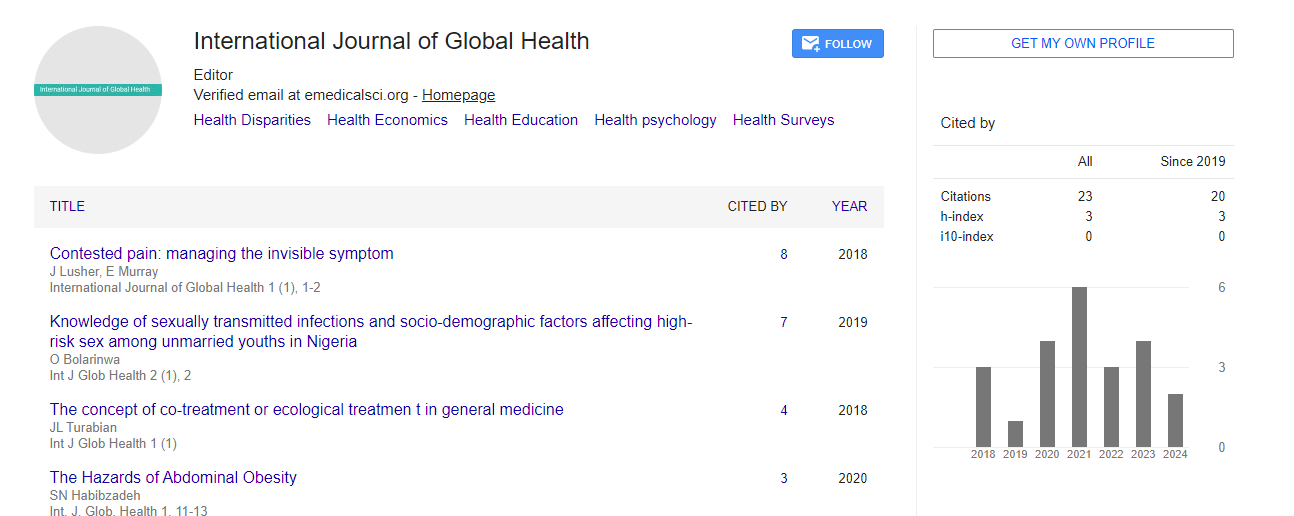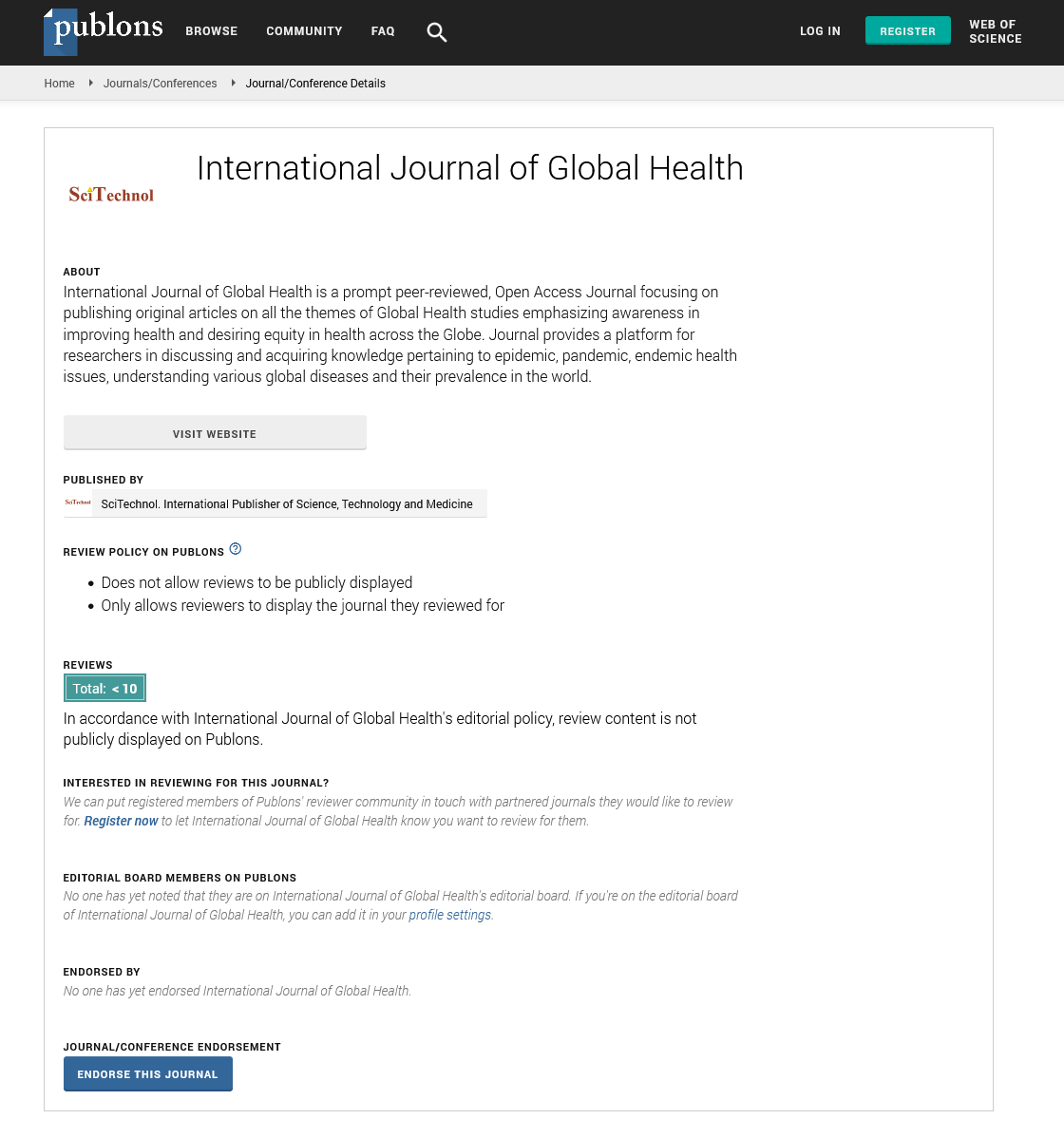Commentary, Int J Glob Health Vol: 6 Issue: 3
Initiatives to Reduce the Impact of Poverty on Economic Mobility
Anna Vasiliev*
1Department of Economics, University of Zululand, KwaDlangezwa, South Africa
*Corresponding Author: Anna Vasiliev,
Department of Economics, University of
Zululand, KwaDlangezwa, South Africa
E-mail: anna.vasiliev@gmail.com
Received date: 28 August, 2023, Manuscript No. IJGH-23-116160;
Editor assigned date: 30 August, 2023, PreQC No. IJGH-23-116160 (PQ);
Reviewed date: 13 September, 2023, QC No. IJGH-23-116160;
Revised date: 21 September, 2023, Manuscript No. IJGH-23-116160 (R);
Published date: 29 September, 2023, DOI: 10.4172/Ijgh.1000191
Citation: Vasiliev A (2023) Initiatives to Reduce the Impact of Poverty on Economic Mobility. Int J Glob Health 6:3.
Description
Poverty can have a profound and lasting impact on individuals and families, limiting their opportunities for economic mobility and perpetuating cycles of disadvantage. However, through targeted initiatives and policies, it is possible to reduce the impact of poverty and provide pathways to economic advancement.
Education and skills development
Early childhood education: Expanding access to high-quality preschool programs ensures that children from low-income families start their educational journey on an equal footing. Providing parents with resources and guidance on early childhood development fosters a supportive home environment.
K-12 education: Ensuring that schools in disadvantaged areas receive adequate funding levels can reduce educational disparities. Closing the digital divide by providing students with access to technology and the internet facilitates learning in the digital age.
Higher education: Initiatives like reducing tuition costs and increasing financial aid opportunities make higher education more accessible. Expanding vocational training and certificate programs equips individuals with marketable skills.
Employment and economic support
Minimum wage and labor protections: Increasing the minimum wage provides a higher income floor for low-wage workers. Strengthening labor protections and enforcing workers' rights safeguards against exploitation.
Job creation: Infrastructure projects build jobs and stimulate economic growth. Facilitating access to capital and resources for small businesses fosters entrepreneurship and job creation.
Income support: Expanding the Earned Income Tax Credit (EITC) provides financial assistance to low-income working families. Piloting Universal Basic Income (UBI) programs can alleviate poverty and support economic mobility experiments.
Health and well-being
Affordable healthcare: Expanding Medicaid eligibility ensures that low-income individuals have access to essential healthcare services. Promoting preventive care and wellness programs reduces long-term health costs.
Mental health services: Ensuring that mental health services are affordable and accessible addresses a vital aspect of well-being. Implementing trauma-informed care approaches helps individuals cope with the psychological effects of poverty.
Financial inclusion
Initiatives to combat banking deserts and promote access to financial institutions reduce reliance on predatory financial services. Promoting financial literacy equips individuals with essential money management skills.
Housing and neighborhood development
Affordable housing: Expanding affordable housing options and rent subsidies ensures stable living conditions. Housing-first initiatives provide stable housing as a foundation for addressing other challenges, such as unemployment and addiction.
Community revitalization: Targeted investments in distressed neighborhoods improve living conditions and build economic opportunities. Enhancing access to essential community services, such as healthcare, education, and public transportation, improves quality of life.
Community engagement and support
Funding and collaborating with non profit organizations that provide essential services and support to individuals in poverty. Making mentorship and support networks to guide individuals on their paths to economic mobility.
Conclusion
Initiatives to reduce the impact of poverty on economic mobility require a multi-pronged approach that addresses education, employment, healthcare, financial inclusion, housing, and community development. By implementing and supporting these initiatives, policymakers, organizations, and communities can work together to break the cycle of poverty, foster economic mobility, and build a more equitable society where all individuals have the opportunity to thrive.
 Spanish
Spanish  Chinese
Chinese  Russian
Russian  German
German  French
French  Japanese
Japanese  Portuguese
Portuguese  Hindi
Hindi 
